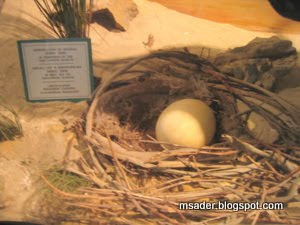I met a woman today who can’t leave her house after dark – especially on the weekends – for fear of being raped. In her neighborhood there are 9 shebeens – or pubs; popular places for men and women to drink.
She told us,
“The weekends are a mess. If there are women at the shebeens with the men, they will most certainly be raped. I hear screams of women in the night from all over the neighborhood.”
Her name is Sweetness. In 2006 she founded
Ubuntu Ma-Afrika, a non-profit organization that provides home-based care and education for people with HIV & AIDS, diabetes, depression, sexually transmitted infections, and victims of abuse and violence. She does this because her beloved aunt died of AIDS. Her aunt was embarrassed and afraid to tell people about her condition. Without medication, it wasn’t long before she passed away. With tears in her eyes, Sweetness told us that she believes her aunt would still be alive if she had accepted her condition and sought treatment. Sweetness couldn’t stand by and watch others suffer; she needed to do something to help.
Her neighborhood is in a township outside of East London. There are approximately 9,000 people in the township, many of whom are uneducated (there is only one school up to level 5), unemployed and poverty-stricken. From 2 small rented rooms, she and the other leaders train volunteers to care for homebound patients, run awareness campaigns and educate, educate, educate.
In the room with us today were 3 other women. I asked them why they volunteer. The first began volunteering after she learned she was HIV positive. The second, a retired nurse, just looked at us and said, “I hope now that you know about us you will help us.” The third was very shy but let us know she’s been volunteering for 2 years. A larger group of volunteers of all ages came through the cramped room to greet us.
Although the organization receives funding from the government, it’s never enough (and sometimes doesn’t come at all). Their monthly rent is R500 (approx. $60 USD). They lack the computers they need to keep proper records. Because of their limited funding, they can’t do as many awareness campaigns as they would like. Once or twice a month, a mobile clinic comes to the community. That’s when the team springs to action. As the 60-70 people wait in line for their turn at the mobile clinic, the Ubuntu Ma-Afrika volunteers are there to meet them, hand out literature, and talk about the many topics that make up their platform.
When I asked what the organization needed and how people could help, Sweetness shared this wish list: a decommissioned shipping container to convert into office space, clothes, food, medicine and, of course, money. As I write this, Immi and I are brainstorming about how to launch a campaign to help. If the organization can get a shipping container or a prefab building (which would be a luxury), the government would grant them a piece of land where they could set up permanent offices – rent free.
I am humbled and inspired by the strength and resilience of Sweetness and the many other South African women I’ve met on this journey. I can only imagine how they may have suffered – as a society bound in the past by apartheid or as individuals still at risk for rape, abuse and violence. I admire their ability to overcome obstacles, follow their passion and put whatever resources come their way to use in their community – and get by even when there are none.








